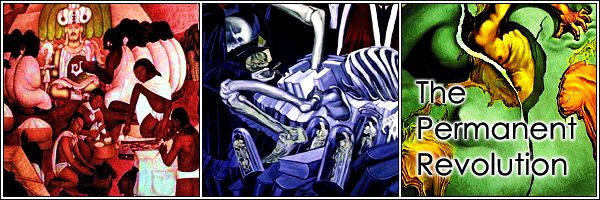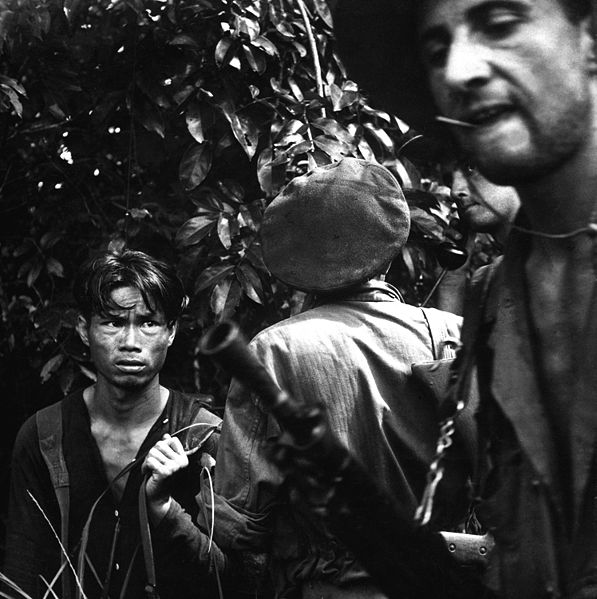Escalation in Afghanistan: The Debate

Two escalators (bottom), one WTFer, and one indecider.
9 pieces to understand what is going on:
1) WaPo breaks down the new polls: 1/2 of Americans believe the Afghan War is not worth it, 1/4 are for escalation (above the 21,000 earlier this year), 45% want to decrease troop levels. The administration is going against its (presumably safe) liberal base and has much, much more support from conservatives on this issue.
2) National security expert Anthony Cordesman explains why escalation is necessary in "How to Lose in Afghanistan". He says the US/NATO have been losing over the last 8 years because of insufficient resources. Victory is possible thanks to the vigorous new leadership of General Stanley McChrystal and Ambassador (General) Karl Eikenberry, the concentration of civil-military powers in those two without Washington "micro-managing", and, most of all, more money and soldiers. (McChrystal's predecessor, General David McKiernan, was fired in mysterious circumstances, an action unheard of since MacArthur.) Cordesman notes the debate within the U.S. foreign policy elite, saying that "strong elements in the White House, State Department and other agencies" are opposing the new move. The threat: "an enduring regional mess" and a sanctuary for Al Qaeda." He concludes rather cautiously: "We have a reasonable chance of victory if we properly outfit and empower our new team in Afghanistan".
3) Dexter Filkins at the NYT reports on McChrystal's assessment of the situation: "serious, but winnable." So long as he has the resources to do it. Defense Secretary Robert Gates and NATO Secretary General Anders Rasmussen don't emphasize American soldiers, but Afghan ones: "I would not exclude the possibility that we need more combat troops, but first and foremost I would say that we need to increase significantly the number of Afghan soldiers".
4) There are the dribs and drabs from McChrystal himself... The actions of the past few months - his new "protect the people, don't destroy the enemy" counter-insurgency (COIN) guide, the "new strategy", his appointment as a COIN expert, the emphasis on the Afghan army - appear to me an attempt to rehabilitate the Afghan War the way General Petraeus did the Iraq War. His much-awaited report to the President is secret, allowing Obama to do some very in-character temporizing..
5) The NYT on hundreds of reports of irregularities in the recent election and thousands of complaints, recorded by the Afghan electoral authorities. Hamed Karzai's main opponent, Abdullah Abdullah, alleges fraud and we get an introduction to Afghanistan's "tribal machine" politics.
6) The Guardian intelligently sums it all up, using an illustrative photo of McChrystal to impart a subliminal message (subtle, subtle!).
7) George Will (why not?) in "Time to Get Out of Afghanistan" points out that poppy grows, elections don't change a thing, the economy is minuscule (less than 3$/day per Afghan), counter-insurgency theory says many 100,000s of troops are needed (impossible), the government controls only 1/3 of the country, one shouldn't think we can magically remove what McChrystal called the "culture of poverty" there.. Really quite eloquent when he wants to be. He concludes that if there is reason for the Afghan War then "must there be nation-building invasions of Somalia, Yemen and other sovereignty vacuums?" Instead, he advocates special operations, infiltration and missiles to defend the U.S. from Al Qaeda in Afghanistan, not occupation.
8) Stephen Walt is a little smug that McChrystal and the hawks' assessment of the situation is as negative as he has been blogging for months.
9) William Pfaff opines on the substitution of victory.
Personally, I find it an eerie coincidence that these events are occurring just as I have done so much research on the Indochina War, and specifically, how it was perpetuated and escalated thanks to the promise of a "Vietnamese National Army". All situations are different and I don't claim to be an expert on Afghanistan, but I can't help but be troubled many similarities: a new general, a new strategy, a mobilization campaign, the uniting of civil and military authorities, escalation... all on the promise that our local allies will have their army expand geometrically at the snap of our fingers. The similarity of even the words used sends a chill down my spine.
If we go up the escalatory chain, it is without optimism that I hope the Americans' Afghan National Army will prove a better bet than the French's Vietnamese one.
Labels: Afghanistan War, Barack Obama, COIN, Jim Jones, Mike Mullen, Stanley McChrystal













